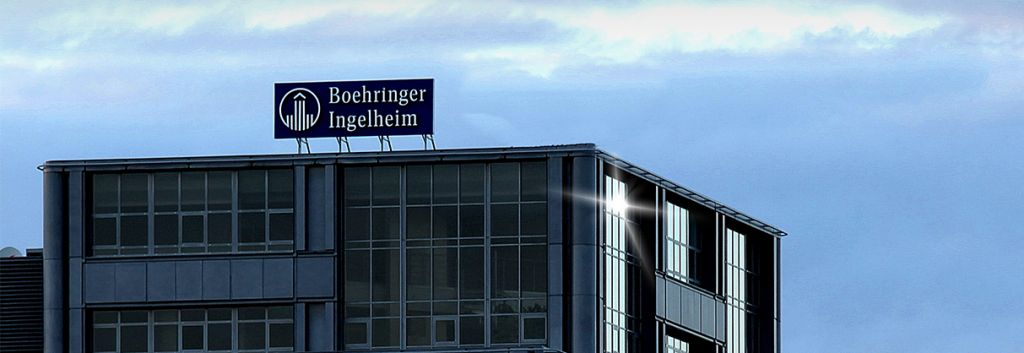Does NASH mean anything to you? You should be vigilant about this market as it could be the source of next major blockbusters. This new and latest acquisition by Boehringer, is yet another sign of the growing interest for NASH treatments, already chased by companies such as Intercept, Genfit or Gilead.
NASH, or non-alcoholic steatohepatitis, is regarded as a major cause of fibrosis and cirrhosis of the liver and is an area of high unmet clinical need. The high prevalence of type 2 diabetes and obesity, which can lead to NASH, is considered to make NASH one of the most common causes of advanced liver disorders in the coming decades. The market has been estimated to exceed €3Bn by 2025, arousing the envy of Big Pharma companies and mid-size Biotechs.
Just two months after getting an option to buy Australian Pharmaxis’ NASH drug, Boehringer Ingelheim has decided to entirely pocket the program. Pharmaxis‘ investigational drug candidate PXS4728A is an inhibitor of the vascular adhesion protein-1 that works by blocking leucocyte adhesion and tissue infiltration in inflammatory processes. Pharmaxis intends to use these anti-inflammatory properties to fight NASH-related inflammation of the liver.
Pharmaxis has developed PXS4728A through phase 1 clinical studies, demonstrating oral bioavailability, long-lasting target inhibition and good tolerability and safety. The drug candidate has also further potential in chronic obstructive pulmonary disease and other diseases with high medical need.
Pharmaxis will receive an upfront payment of €27.5M and, subject to the continuing successful development and commercialisation of the PXS4728A program, could obtain up to €195M for the NASH indication plus another €195M for a second indication, without counting earn-out and milestones payments on future net sales. A nice deal for the Australian company! Under the agreement, Boehringer has also acquired other inhibitor molecules related to PXS4728A and associated patents.
Boehringer thinks Pharmaxis’ molecule stands out from other drug candidates developed by competitors even if it’s still at an earlier stage. Genfit, a French company is leading the way with the US-based Intercept Pharmaceuticals. The two companies are moving towards Phase III, after posting some promising mid-stage efficacy data for Intercept and despite a mid-stage failure to beat placebo for Genfit.
Boehringer is joining a several drugmakers such as Gilead, Shire but also smaller companies currently stuck in Phase I or II.
Advancing in stealth mode also lead to another unexpected challenger, namely the Danish Novo Nordisk… In a small Phase II study presented during last month’s International Liver Congress, Novo’s approved diabetes drug liraglutide showed promising results to treat NASH. Liraglutide is already a blockbuster product and NASH could strongly reinforce related revenues. But Novo remains wisely cautious as this first study only involves 52 patients and doesn’t precisely indicate the effects of liraglutide in NASH. The dark horse’s results could reshuffle the cards of the NASH race if Novo Nordisk intends to go all in on this competition.
Also unexpected was the entry of Gilead into the NASH competition last February. Gilead announced the acquisition of Phenex’ development program for NASH and other liver diseases for a potential sum worth €420M. This drug, shortly before being abandoned, was saved by an unexpected series of events showing the deep bounds between NASH candidates. In December 2013 Phenex almost disappeared after the discovery of heart-related side-effects of its drug. Yet, at the same time, the candidate drug of US-based Intercept, showed promising results. This is important as both the candidates from Phenex and Intercept belonged to the same class of drugs. Completely out of the blue, it was indeed Intercept’s results that miraculously saved Phenex from bankruptcy and the German biotech used a back-up compound with a safer profile to enter Phase II. A few months laters Gilead grabbed it!
The NASH war is going wild, and the first-in-class is sure to be the next blockbuster! The biotech market could be shaken by this rude competition as it’s the case in Australia after Boeringher acquired the products of Pharmaxis. The business of this last company will be significantly transformed by this deal. Just after the acquisition, they announced that their new drug development will orbit around PXS4728A’s milestones. If Boehringer succeed, their new source of revenues could be sufficient for future developments which, will then benefit to the whole Australian biotech ecosystem. At least, that’s what the company is hoping. Let’s see whether the competition will be wone by a European player with the same intentions.





